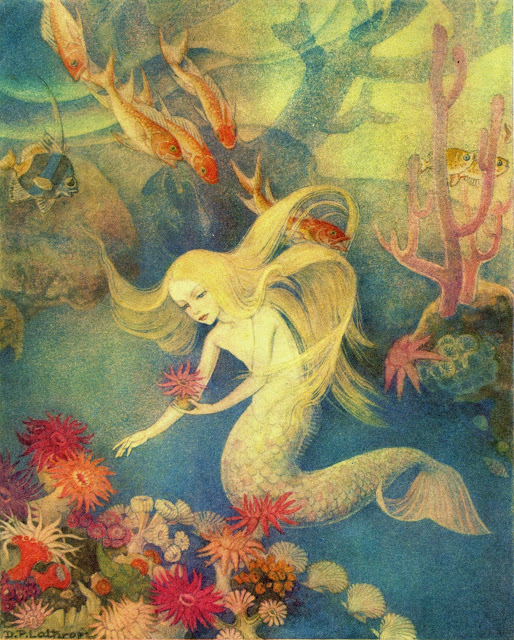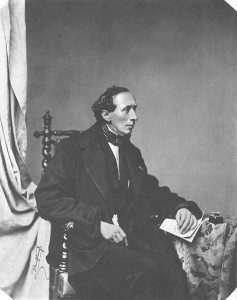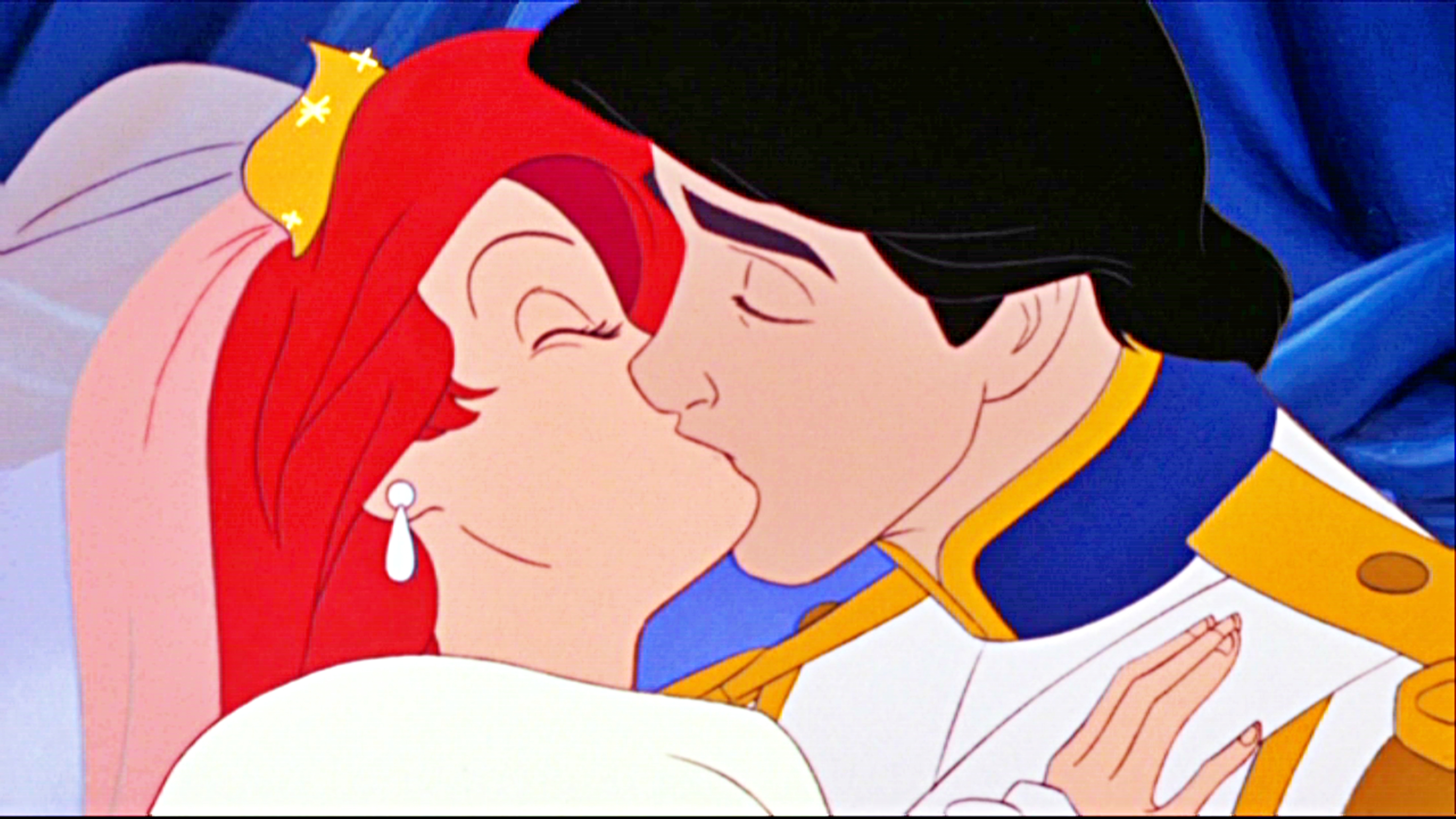There are some interesting similarities and differences between Hans Christian Andersen and his most famous character, the Little Mermaid. And a comparison of the two reveals a deeper meaning to the fairy tale, and the same-sex love story forgotten in history.
In the original tale, the Little Mermaid has five sisters, and her grandmother is a queen who wears ‘twelve oyster tails on her tail, whereas the highest of the nobles were allowed to wear only six’ (50). This is very different from Hans Christian Andersen. He was an only child and while he believed that his grandmother was related to nobility, this turned out not to be true at all.
The Little Mermaid and her sisters live in a beautiful palace ‘the walls of which are of coral, the long, pointed windows being of purest amber, and the roof is formed of mussel-shells […] in each lie glistening pearls’ (49-50). The Little Mermaid and her sisters all had their own ‘piece of ground in the [palace] garden, where she could dig and plant as best pleased her’ (50). Meanwhile, Hans grew up in a small house in one of the old poor quarters of Odense with 3 families (12 people) and never had any privacy or his own space.

Hans Christian Andersen with E.H. Wehnert's illustration of The Little Mermaid

Disney's The Little Mermaid

Illustrated by Dorothy Lathrop
While Hans loved to tell stories, the Little Mermaid loves to hear stories: ‘Nothing gave her so much pleasure as to hear about the world above’ (50).
When the Little Mermaid turned 15, she was given ‘a wreath of lilies on her head, of which each leaf was the half of a pearl’ to mark her high social rank before fulfilling her deepest desire of venturing to the surface of the sea for the first time. When Hans was 15 he experienced a string of unsuccessful financial endeavors that left him in poverty.
The Little Mermaid lives outside of the human world, desperate to join it. Only if she could marry the prince she loves so much could she truly join the human world with an immortal soul. Hans also felt like an outsider. In 1836, Andersen wrote to Edvard Collin “Our friendship is like 'The Mysteries', it should not be analysed," and "I long for you as though you were a beautiful Calabrian girl." In 1837, Andersen published the story of a mermaid who falls in love with a prince

The Little Mermaid agrees to extreme pain and suffering, and sells her own voice, all for a chance to be with the prince. This parallels Hans’ emotional pain, and his inability to openly voice his love for Edvard. While in the Disney movie the prince marries Ariel, in the original fairy tale the prince marries a human woman, something that almost kills the Little Mermaid. Edvard also marries a woman, leaving Hans desperately sad and alone.
In the end, the Little Mermaid becomes a spirit of the air, making children happy until the day she’s permitted into Heaven. While Hans wrote fairy tales, more than 3000 of them, making children happy all over the world. The Little Mermaid didn’t get to marry her prince, and Hans didn’t get to marry Edvard. But not long after, Hans met the Hereditary Grand-Duke of Weimar, whom he maintained a relationship with until the day he died.
Read the original Little Mermaid’s story yourself
Learn more of Hans Christian Andersen’s same-sex relationships
Thanks to Disney, our understanding of merfolk today forgets this lgbt+ history, and so we need to look to new stories to remind us. Take, for example, the webcomic ‘Castle Swimmer’ by Wendy Lian Martin. In this story a young mer-prince is destined to kill a merman known only as The Beacon. But when the two young mermen meet, they instead fall in love. Now they must find a way to not only be together, but to stay alive.

Disney's The Little Mermaid

Illustrated by Charles Santore

‘Castle Swimmer’ by Wendy Lian Martin





